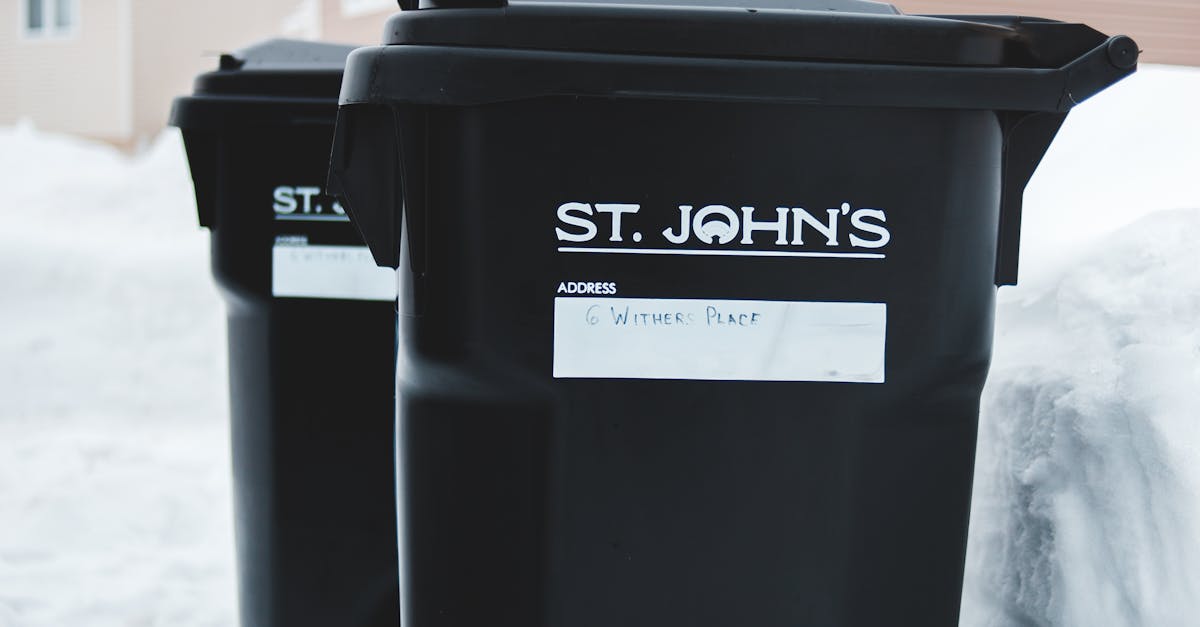What is the most common dumpster rental?

Table Of Contents
Rental Duration Options
When considering dumpster rentals, the duration of the rental period is a key factor to weigh. Short-term rentals typically span a few days to a few weeks, making them ideal for small projects such as home renovations or cleanouts. This option allows flexibility for those who need additional time without committing to a longer contract.
Long-term rentals, on the other hand, cater to larger or ongoing projects. These can range from a month to several months, making them suitable for construction sites or extensive business operations. Companies often offer preferred rates for extended periods, which can benefit frequent users who require regular waste disposal solutions.
ShortTerm vs. LongTerm Rentals
Choosing between short-term and long-term dumpster rentals depends on the specifics of the project and its duration. Short-term rentals typically cover a few days to a week, making them ideal for brief cleanouts, renovations, or yard work. This option allows for quick disposal of debris without a lengthy commitment. Homeowners and contractors often prefer this flexibility, especially for tasks that require immediate attention.
In contrast, long-term rentals cater to larger projects or ongoing needs, such as construction sites or extensive remodeling efforts. These rentals can last from weeks to months, accommodating significant waste that accumulates over time. They offer a more economical solution for extended jobs while ensuring consistent access to disposal services. Understanding the timeline of the project helps in selecting the most suitable rental period, ultimately optimizing both efficiency and cost.
Finding a Reliable Provider
When searching for a dependable dumpster rental service, it is essential to start by evaluating local providers. Collecting recommendations from friends, family, or online reviews can provide insights into the reputation of different companies. Pay attention to aspects such as customer service, pricing transparency, and the conditions of the dumpsters. A reliable provider typically offers clear communication about the rental process, including delivery and pick-up schedules.
Comparing options can further assist in making an informed choice. Checking if the company is licensed and insured provides additional assurance about its legitimacy. Furthermore, exploring the range of sizes and types of dumpsters available can help match the right service to specific project needs. A transparent provider will also discuss any additional fees upfront, ensuring that there are no surprises during the rental period.
Evaluating Local Companies
When looking for a dumpster rental provider, examining local companies is crucial for ensuring quality service. Start by checking reviews online and gathering feedback from previous customers. This can provide insights into the reliability and professionalism of the company. Additionally, consider how long the company has been in business. Established providers often have a track record that reflects their commitment to customer satisfaction.
It is also beneficial to compare pricing and services offered by different providers. Request quotes from multiple companies to understand the pricing structures in your area. Look for transparency in fees, as hidden charges can lead to unexpected expenses. Availability of different dumpster sizes should also be taken into account, as it can affect the overall efficiency of your project. A local company that offers a variety of options may better meet your specific needs.
Local Regulations and Permits
When renting a dumpster, understanding local regulations is crucial. Different municipalities have specific rules regarding placement, size, and duration of rent. Failing to adhere to these guidelines can result in fines or delays in your project. It's essential to check any zoning laws that might affect where you can put the dumpster, particularly if it's on a public street or sidewalk.
Obtaining the necessary permits is an important step in the rental process. Many areas require permits for dumpsters placed on public property. This typically involves submitting an application to the local government and providing details about the project. Ensuring that you have the proper permissions not only keeps your project on track but also helps avoid potential legal issues down the line.
Zoning and Placement Guidelines
When renting a dumpster, it's essential to be aware of local zoning laws that dictate where a dumpster can be placed. These regulations may vary significantly from one municipality to another. Certain areas restrict placement to ensure safety and maintain the aesthetic of the neighborhood. It's advisable to consult local guidelines to determine if permits are necessary before setting up your rental.
Placement of a dumpster should ideally consider both accessibility and compliance with traffic regulations. Avoid obstructing roadways or sidewalks, as this can lead to fines and complications during pickup. Additionally, clear communication with your rental provider can help ensure that the dumpster is placed in a location that meets both your needs and local requirements.
FAQS
What types of projects typically require a dumpster rental?
Dumpster rentals are commonly needed for home renovations, construction projects, landscaping, cleanouts, and large-scale events.
How long can I rent a dumpster for?
Dumpster rentals can typically be arranged for both short-term (a few days to a week) and long-term (several weeks or even months) durations, depending on your needs.
Are there weight limits for dumpsters?
Yes, dumpsters usually have weight limits that vary by size and type. It's important to check with your rental provider to understand these limits to avoid extra fees.
Do I need a permit to rent a dumpster?
In many areas, a permit may be required, especially if the dumpster will be placed on public property or the street. Always check local regulations before renting.
How do I choose the right size dumpster for my project?
To choose the right size dumpster, consider the volume of waste you expect to generate. Rental companies often provide guidelines on sizes and the types of projects they are suited for.